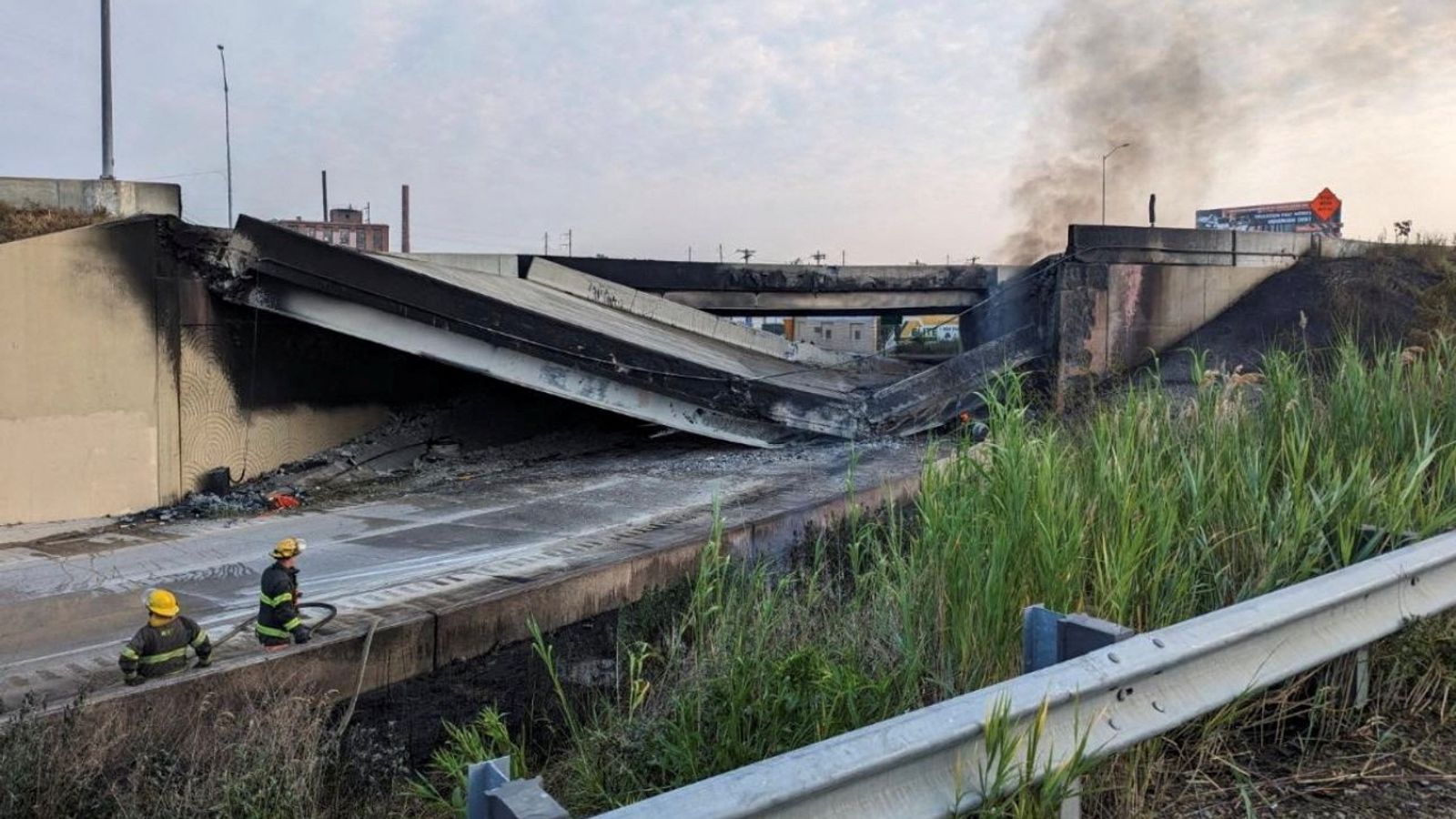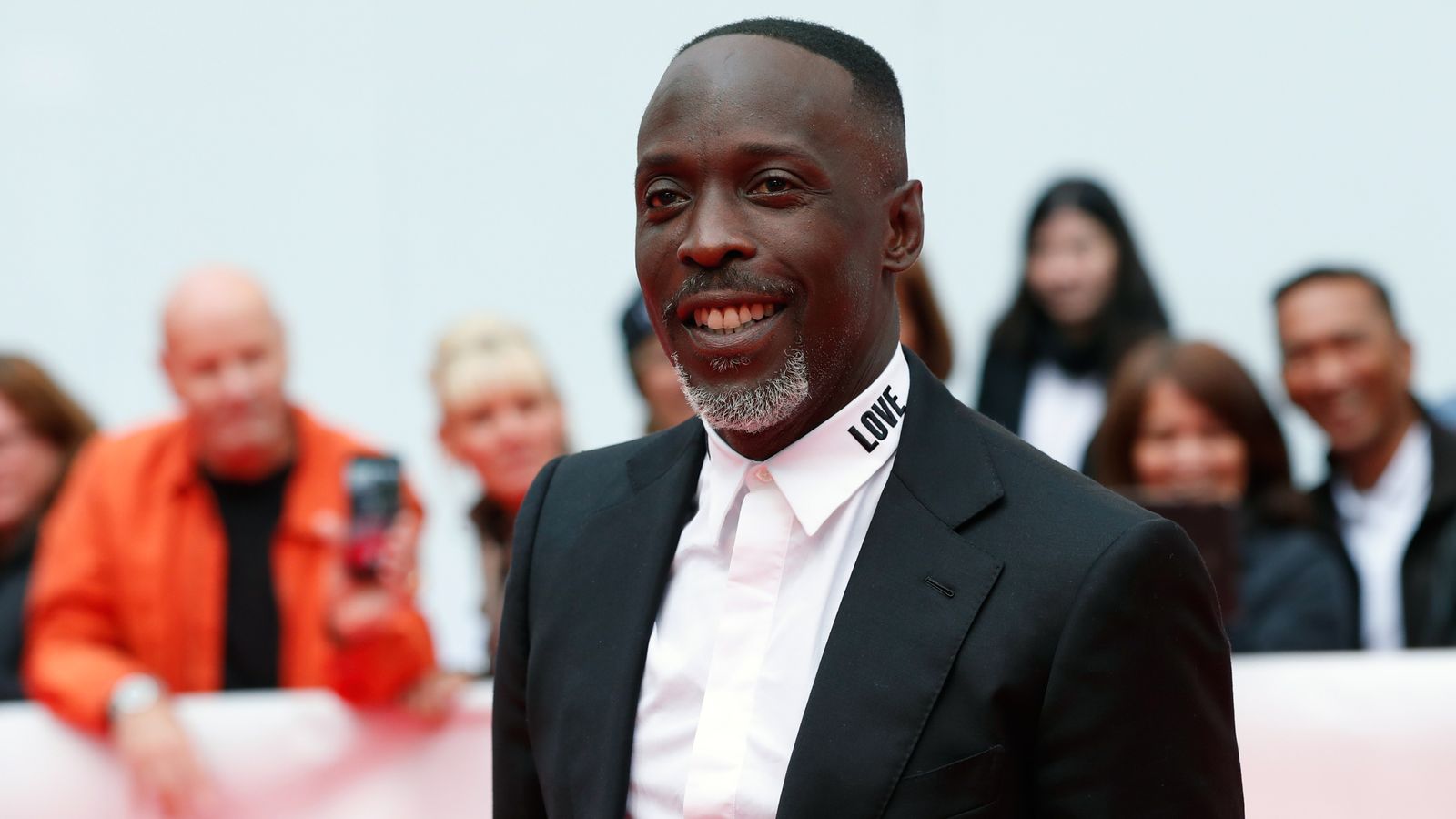(RNS) — A week after the Catholic funeral of an iconic New York City LGBTQ+ figure, the fallout seems to have widened the rift between the LGBTQ+ community and U.S. Catholic leaders, revealing deep fault lines imperiling Pope Francis’ plans to make the church more inclusive.
Cecilia Gentili, a transgender activist, actor and legislative lobbyist, was honored at a Feb. 15 funeral packed with mourners in St. Patrick’s Cathedral, the mother church of the Archdiocese of New York and former site of 1980s protests by gay Catholics and AIDS activists against the church’s stance on homosexuality and the use of condoms.
Amid growing backlash from conservative Catholics to the funeral, where mourners chanted, cheered and celebrated Gentili’s past as a sex worker, Gentili’s friends and family and New York Cardinal Timothy Dolan both have said they felt “disrespect” from the other group.
In the livestream of the funeral, a hot microphone caught someone telling the funeral’s celebrant, the Rev. Edward Dougherty, to conduct only a shorter funeral service, instead of a funeral Mass.
Ceyenne Doroshow, an organizer of the funeral, whom GQ profiled in 2020 as the “godmother” of the movement for Black trans lives, told Religion News Service she holds Dolan responsible for “inciting hate,” leading to the flood of threats she’s received since the archdiocese spoke out against the funeral. “There was a picture in the paper of my mom, and there was a threat on my mom,” she said.
After clips of the funeral circulated on social media, CatholicVote.org, a lobbying organization that has spearheaded anti-LGBTQ+ campaigns, accused funeral attendees of being “anti-Catholic,” tweeting a clip where a mourner called Gentili “Saint Cecilia, mother of all whores.”
New York Fire Department Officers march up Fifth Avenue while they pass in front of St. Patrick’s Cathedral during the St. Patrick’s Day Parade, Thursday, March 17, 2022, in New York. (AP Photo/Eduardo Munoz Alvarez)
Initially, the Archdiocese of New York seemed to defend holding the funeral, saying that every funeral at St. Patrick’s was for a sinner. “The Church has a sacred obligation to bury the dead. It is a corporal work of mercy,” Joseph Zwilling, an archdiocesan spokesperson, told The Pillar on the evening of Feb. 16. RELATED: Dodgers remove ‘queer and trans nuns’ from Pride Night amid Catholic pushback’ top court meeting
But as conservative anger snowballed, the archdiocese released a statement thanking those who expressed “outrage” over the “scandalous behavior” and announcing that it had held a Mass of Reparation, a way, in the Catholic tradition, to make amends for one’s own or someone else’s sins.
“The Cathedral only knew that family and friends were requesting a funeral Mass for a Catholic, and had no idea our welcome and prayer would be degraded in such a sacrilegious and deceptive way,” the archdiocese said.
On Feb. 20, the mourners released their own statement requesting a public apology from the archdiocese for its “painfully dismissive and exclusionary language.”
The Archdiocese of New York did not respond to multiple requests for comment from RNS. RELATED: New York Archdiocese denounces transgender activist’s funeral held at St. Patrick’s Cathedral’ top court meeting
Gentili died of unspecified causes Feb. 6 at the age of 52. Born in Argentina, she moved to the U.S. in 2000, experiencing homelessness and addiction while she supported herself as a sex worker. Later, Gentili worked at a health center and for Trans Equity Consulting, where she worked with HIV+ people, trans people, sex workers, incarcerated people and immigrants.
According to press reports, she successfully sued the Trump administration when it tried to roll back the Affordable Care Act and lobbied for the New York State Gender Expression and Discrimination Act. When Gentili died, she had been working to decriminalize sex work in New York.
Gentili also acted in the FX series “Pose,” about ball culture in the 1980s, and in “Red Ink,” a one-woman Off-Broadway show about her life. She also wrote a memoir, “Faltas: Letters to Everyone in My Hometown Who Isn’t My Rapist.”
Doroshow said she chose St. Patrick’s because of its size and to honor Gentili’s journey with spirituality in her last years. “I had never thought in a million years that St. Patrick’s would say yes,” she said, explaining she was prepared to search for a theater space.
Doroshow said she told the person who answered the parish phone that Gentili was “an icon in the LGBT community.” Told that St. Patrick’s worked with funeral homes, not with the bereaved, Doroshow contacted a funeral director who assisted with the funerals of other community members. She said the funeral home told the Rev. Andrew King at St. Patrick’s that the funeral would be for the LGBTQ+ community.
In his SIRIUS XM radio show, “Conversation with Cardinal Dolan,” Dolan doubled down on the claim that the archdiocese was misled, saying that the cathedral “didn’t know the background of this woman who died.”
FILE – Cardinal Timothy Dolan, archbishop of New York, speaks during a news conference, Monday, Sept. 30, 2019, in New York. (AP Photo/Mark Lennihan)
In an interview with The New York Times on Feb. 14, the day before the funeral, a spokesperson for the archdiocese declined to say whether the church knew about Gentili’s background.
Other cathedrals have stricter policies about who may receive a funeral. At the Cathedral of Our Lady of the Angels in Los Angeles, the deceased must be a registered parishioner or have a burial space purchased in the cathedral’s mausoleum, according to a staff member.
At the Washington National Cathedral, a landmark Episcopal church in Washington, D.C., there are pastoral encounters and a consultation process before a funeral is held.
Kevin Eckstrom, chief public affairs officer for the cathedral, told RNS that, before a funeral for a deceased person whom the cathedral had not known, “there would be a process of getting to know the person and getting to know the family, and that applies regardless of who it is.”
Doroshow said the St. Patrick’s funeral stands out in her experience of arranging funerals. “This is the first time it’s ever been a mess. This is the first time I’ve ever had a so-called person of God go on a hate rant about anybody,” she said.
Immediately after the service, Gentili’s friends and family were on a “natural high,” Doroshow said, “from the whole community coming up and showing up to love her.”
They only later realized the significance of the priests’ decision to change the plan to say a funeral Mass and end the service before the liturgy of the Eucharist. Gentili “did not get her last rite,” said Doroshow, alleging that the archdiocese had broken Catholic canon law.
Two canon lawyers told RNS that the decision had not violated canon law.
“There is a right among the Christian faithful to have a Church funeral (i.e. a burial ceremony) not necessarily a Mass,” Nicholas Cafardi, dean emeritus of Duquesne Law School and a canon lawyer, wrote in an email. “In fact, today, with our priest shortage and the preference of the faithful, many Catholics are buried with a rite of Christian burial and not a funeral Mass.”
And even that right to a Christian burial is not absolute because canon law lists several exceptions, including for apostates, or people who renounce the faith.
Gentili identified as an atheist. “An atheist, publicly self-proclaimed, is an apostate, and strictly speaking would not even have a right to Christian burial, though it is not an unusual pastoral practice to presume some form of death-bed grace and repentance that allows the burial,” Cafardi explained.
The Rev. John Beal, the Stephan Kuttner distinguished professor of canon law at the Catholic University of America, agreed. “When the presider at that liturgy realized that it had been hijacked, he did the correct thing by simply stopping the celebration of the liturgy,” Beal told RNS.
Doroshow, who said she was physically and sexually abused as a Catholic school student, said the decision to deny a funeral Mass is hypocritical.
“If you’re going to say that you did not honor this lady because she was an ex-sex worker, because she was this or that, did those priests that raped those young men get an honorable burial?” Doroshow asked.
John Casey, a senior editor at The Advocate, an LGBTQ+ magazine, wrote a Feb. 22 op-ed in the magazine accusing the church hierarchy of hypocrisy.
Casey, who wrote about growing up Catholic and his own sexual abuse at the hands of a priest, also wrote about clergy abuse, asking, “Where was the rush to have Masses of Reparation for all the victims whose lives were ruined by the criminality of the clergy?”
The blowup over Gentili’s funeral underscores the difficulties facing Francis as he tries to move the church toward greater inclusion for LGBTQ+ people. While the pope has been less welcoming to transgender Catholics than gay Catholics, frequently criticizing “gender ideology,” the pope has invited transgender sex workers to the Vatican and at World Youth Day in Lisbon last August led young Catholics in a chant of “todos, todos, todos,” or “everyone, everyone, everyone.”
That refrain echoed as he approved the spontaneous blessings of same-sex couples in December, but many Catholic bishops and cardinals throughout the world made it clear in the following weeks that they felt that Francis had gone too far.
Doroshow said, “This is their personal, religious fight. We just happened to walk smack dab through the middle of it.”









